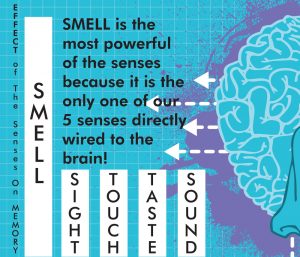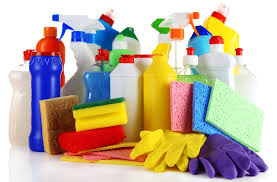Our regular cleaner, ‘Cheryl’, is out of commission expecting her second child. We have a comfortable, relaxed relationship with Cheryl that includes a cup of tea and a chat during an extended stay. This week, in Cheryl’s absence, we began a relationship with ‘Dan’ and his dad. Naturally they wanted to make a good impression, which they did – whirlwind-like. It occurred to me that it might be useful to generalise from the experiences with Cheryl and D + D to produce an instruction manual for the industry they represent so well.
Introduction
Professional house cleaners face a tough challenge.
Time and time again they will enter a new host’s premises with no prior knowledge of the type of home it is or of the characteristics of the host family. Each time, they have one hour in which to make that home a cleaner place and, more importantly, to leave a good impression.

Every time this happens there is only one sign of success, one KPI to be met: to be invited back next week.
This How to manual provides invaluable advice for house cleaners young and old, and for experienced practitioners as well as for beginners. Using the approaches outlined here can take much of the care out of your scared.
Two strategies
Experienced house cleaners understand the importance of using every minute in a new premises to their best effect. Each time you work with a new host you have the opportunity to convert your lean time to profitable cleaning time. Remember that if you fail to impress, you will be less of a rooster and more of a feather duster.
The approach we recommend is based on two strategies: Optimising the Common Senses; and recognising the importance of Continuity of Stimuli.
Optimising Common Senses
Whatever the other characteristics of your host, they are almost certain to be endowed with the five human senses or methods of perception: taste, sight, touch, smell, and hearing. You need to make every one of these a winner so that their sixth sense tells them that, with you as their cleaner, they are onto a good thing!
- Taste: this is the trickiest of the senses to optimise. Your host is probably aware of the saying that there are more germs on their kitchen cutting board than on their toilet seat, but you cannot be assured that they will be willing to subject this to a taste test. But you can perform your duties in such a way as to guarantee that they have a good taste in their mouth when they reflect on the work you do and the money they pay for it.
- Sight: with practice, you will soon become adept at observing the particular spots in a home that are most frequently used by your host and their family – likely to include the kitchen, living room and bedrooms. Once this is done it will be obvious to you that small things like vases, unopened mail, hairbrushes, car keys, make-up bags and TV remotes each have their special accustomed place. You should move as many of these as possible so that they are still visible to the host when they get home but just relocated enough from normality to evoke the response “That’s funny: I don’t remember shifting it there.” (As you are making these adjustments you should consider the Continuity of Stimuli strategy discussed below.)
- Touch: when it comes to the sense of touch, the most important things to remember are not what you should do but what you should not Never help the host with the dirty dishes left over from breakfast or, worse still, from last night’s evening meal. If dirty dishes are cluttering up the sink and draining board you should lift them off temporarily, wipe down the sink and draining board surfaces and then return the dirty dishes to their pre-existing place. Other things not to touch include the iron, washing machine, dishwasher and bedding.
- Smell: the strength and evocativeness of the olfactory system is often understated, perhaps because it represents one of the oldest sensory modalities in the phylogenetic history of mammals. Be sure not to make
 the mistake yourself of underestimating its potency. When you first arrive on site, and again immediately before you leave, be sure to spray the toilet and bathroom with an instantly recognisable cleaning agent. In a larger house, we recommend you use industrial strength agents. A good trick is to leave the extractor fans running in the kitchen and bathroom, which has two beneficial effects: first it spreads the cleaning odour throughout the house and, secondly, it requires the host to touch the off switch on these devices when they get home.
the mistake yourself of underestimating its potency. When you first arrive on site, and again immediately before you leave, be sure to spray the toilet and bathroom with an instantly recognisable cleaning agent. In a larger house, we recommend you use industrial strength agents. A good trick is to leave the extractor fans running in the kitchen and bathroom, which has two beneficial effects: first it spreads the cleaning odour throughout the house and, secondly, it requires the host to touch the off switch on these devices when they get home.
- Hearing: mention has already been made of the benefit of leaving extractor fans running. Other possibilities include leaving the radio on, broadcasting a station not normally used by the host family. But the simplest audio stimulus which is too often forgotten by even the most experienced practitioner is the vacuum cleaner. Be sure that each time you gain access to a premises you run the vacuum cleaner for at least 5 minutes, during which time you or your partner (see below) should carry the device, moving with the noise from room to room. There is a direct correlation between the effectiveness of this tactic and the decibels of the vacuum, so be sure to have one in your arsenal capable of creating a noise suitable to the size of the property in which you are working.
Continuity of Stumuli
The purpose of this second strategy is to ensure that the signs of your having been present in your host’s home last for as long as possible. You will be underplaying your hand if, when your host returns home, they notice the smell of the cleaning agent (see above) and that the envelope with the cash has gone, but then think nothing more of the matter until next week.
A useful trick is for you to put yourself in the place of your host and think chronologically through their activities upon returning home. First, they will place their car keys in the usual place. See if you can change the nature or location of this ‘usual place’; if it’s a hook on the wall, it can easily be relocated with a screwdriver and hammer; if it’s a small plastic container on the table in the front hall, it can be placed purposefully on the floor beneath the table. Next, your host may well look for today’s mail and place it with the unopened mail from previous days: make sure the pile of unopened mail is relocated just sufficiently to evoke the required response, without placing it completely out of sight. Next they may switch on the television, only to find that the remote has been moved from its usual spot. When they move to the kitchen to prepare their dinner, they might find that the chopping board which usually sits on the surface next to the stovetop has been put away in a cupboard. And the toilet seat might be up.
When planning these tactics it is important not to be too ambitious. Moving the fridge will be a health risk to yourself, if working alone, and is likely to assume more of your 60 minutes than is justified. Switching the position of paintings or pictures on the walls is also not a valuable use of time, as evidence shows that many of the hosts on whom you are working will not notice for several weeks and then may fail to attribute the switch to your activity.
Final Hints
If you bear in mind the two strategies discussed above, we are confident that you will develop a profitable and ongoing relationship with the majority of your hosts.
Finally, there are a couple of ‘tricks of the trade’ that will add to your repertoire.
You know how important it is to make a good first impression. If, on your first visit to your host’s premises, they are expecting just one of you, arriving with two creates a lasting and positive impression – that’s assuming that someone from the family is at home or that the neighbours observe the onslaught and report it when the hosts get home.

Each time you arrive on the host’s doorstep, be sure to be seen to be well-equipped. This can be particularly impressive if there are two of you and both are weighed down with a variety of buckets, mops, vacuum cleaners, bottles, dusters and several unspecified pieces of electronic gadgetry. The whole collection should be placed in a strategic part of the home’s passageway so as to be optimally visible.
As we said above, the key sign of success is that you are invited back again next week. If you follow the advice provided in this manual we are confident you will reach that situation in the majority of cases. And in some, the relationship will go a step further to one in which you become a friend and confidante of the host and enjoy a weekly chat and cup of tea with them.
Always assuming you can remember where you put their tea caddy.
